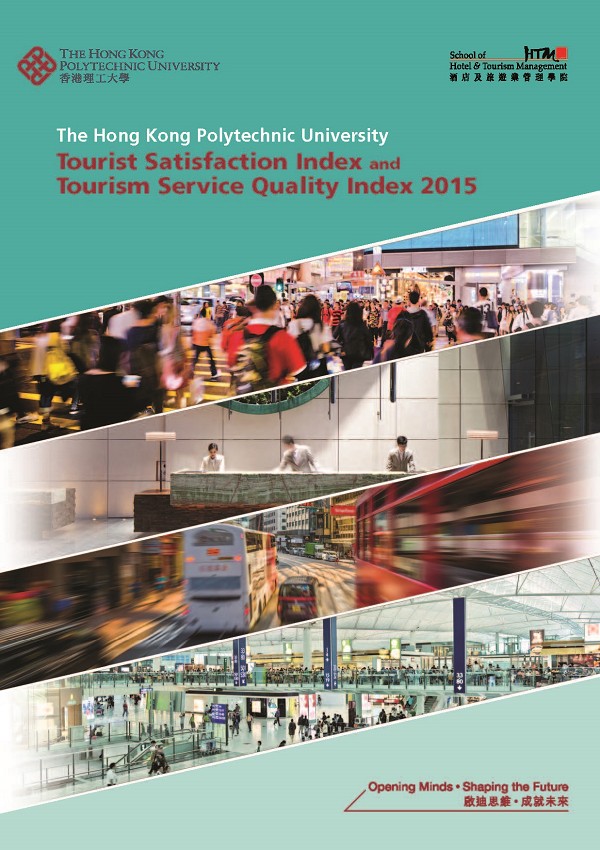The 2015 PolyU Tourist Satisfaction Index (PolyU TSI) and Tourism Service Quality Index (PolyU TSQI) showed general increases compared with the 2014 results, according to a report recently released by the SHTM. The 2015 PolyU TSI and PolyU TSQI stood at 74.71 and 75.22 respectively, recording increases of 0.21 and 0.71 points respectively.
The PolyU TSI increased by 0.21 points from 74.50 in 2014. The slight rise suggested
that tourists were generally more satisfied with the tourism services in Hong Kong than tourists interviewed in 2014, although the level of satisfaction varied across the source markets. Indeed, in 2015 the tourism industry in Hong Kong experienced some turbulence caused by various social and political issues. It is noteworthy to point out that the satisfaction levels of tourists from the Americas, Australia, New Zealand and the Pacific as well as Europe, Africa and the Middle East were more
affected than that of tourists from mainland China.
Against this backdrop, the Americas were the source market with the highest PolyU TSI score of 80.17, a drop of 0.99 points from 81.16 in 2014. This was followed by Australia, New Zealand and the Pacific (78.37), down 1.28 points; Europe, Africa and the Middle East (75.30), with a continuous drop of 1.51 points; South and Southeast Asia (74.72), down 0.88 points; mainland China (73.64), increasing 0.06 points; Taiwan and Macau (72.69),
up 1.44 points; and Japan and Korea (66.29), dropping 0.69 points.
Among the six service sectors, transportation received the highest PolyU TSI score followed by attractions, immigration, retail shops, restaurants and hotels.
The PolyU TSI evaluates service sector competitiveness not only over time but also across international tourist destinations. It has been adopted by destinations including Singapore and Macau in 2010, China's Guangdong province in 2012 and Australia in 2014. Indeed, the 2015 PolyU TSI was the seventh release of the index since its launch in 2009 and the SHTM hopes that increasing numbers of destinations will consider using the widespread framework to measure destination
competitiveness.
Launched in 2012, the PolyU TSQI is a weighted average of the six tourism service quality indices, representing Hong Kong's overall tourism service quality.
Among the seven source markets, tourists from the Americas recorded the highest PolyU TSQI score of 80.84, a decrease of 0.85 points compared to the previous year. That was followed by Australia, New Zealand and the Pacific (80.00), dropping 0.11 points; mainland China (75.64), increasing 0.74 points; Europe, Africa and the Middle East (74.93), dropping 3.20 points; South and Southeast Asia (73.83), down 1.88 points; Taiwan and Macau (72.64), increasing 0.02 points; and
Japan and Korea (65.27), dropping 0.33 points.
The 2015 PolyU TSQI score was 0.51 point higher than the PolyU TSI for the year. The deviation between the two indices indicated areas where service performance failed to boost tourist satisfaction.
The tourism industry in Hong Kong has suffered over the past two years and the city must rethink its strategies to regain visitors' confidence and rebuild their interest in it as an international destination. By using the PolyU TSI and PolyU TSQI frameworks, the SHTM believes that sustainable tourism can be achieved by helping tourism stakeholders better understand their competitiveness and abilities to deliver high-quality experiences to tourists. The indices will also
help Hong Kong's public sector with the formulation of policies that enhance the city's attractiveness as an international destination.
PolyU TSI and TSQI website:
http://www.touristsatisfaction.org

|
|